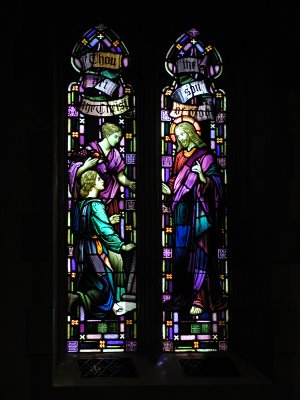
Today is Memorial Day, and we're rightly remembering the many who have given their lives for our country.
But there are others whom we should be recalling on this May 29: the thousands who died on the walls of Constantinople, 553 years ago on this day, in hopeless defense of their city and their faith against Muslim conquest.
Muslim armies had first tried to storm Constantinople over 800 years earlier, and over the centuries since then, had steadily torn away piece after piece of the Byzantine Empire. The pressure was sometimes greater, sometimes less, but the Religion of Peace never gave up its dream of bringing the great Christian empire to its infidel knees. It knew what it wanted, and it was willing to wait.
By the time Mehmet II brought his Ottoman siege guns up to the walls in spring 1453, everyone knew that even a successful defense could only delay Constantinople's capture by a few years. Too much of the empire had been lost. There weren't enough men, and there wasn't enough money.
But that didn't keep the last emperor, Constantine XI, from doing what he could.
The heroic and tragic story of the siege, and its aftermath for Greek Christians, is well-told in Steven Runciman's The Fall of Constantinople 1453, so if you want to know more about this largely-neglected moment in history, that's a good place to start.
When the walls were breached at last,
Theophilus [another Byzantine leader] shouted that he would rather die than live, and disappeared into the oncoming hordes. Constantine himself knew now that the Empire was lost, and he had no wish to survive it. He flung off his imperial insignia and, with Don Francisco and John Dalmata still at his side, he followed Theophilus. He was never seen again.
If you have a moment, say a prayer for the souls of Constantine and the others who died that day. In their own way, they also gave their lives for us, trying to hold at bay the same threat that looms today. They too deserve to be remembered.





